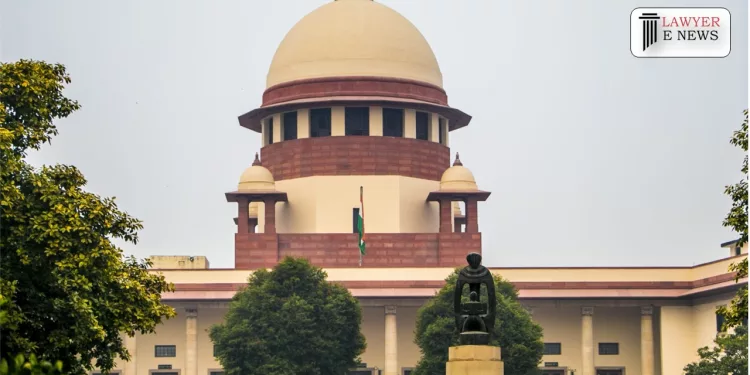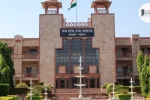Supreme Court Enforces Strict Limitation Rule, Bars Late Suit on Partnership Firm Dissolution

New Delhi — The Supreme Court of India, in a significant ruling, upheld the dissolution of the partnership firm “M/s Shivraj Reddy & Brothers” and declared a suit filed for rendition of accounts as barred by limitation. The judgment, delivered by a bench comprising Justices B.R. Gavai and Sandeep Mehta, reinforces the strict application of limitation laws, even when not raised as a defense.
The Supreme Court judgment addressed the appeals challenging the Andhra Pradesh High Court’s decision regarding the dissolution of a partnership firm and the related issue of limitation. The appellants, represented by the legal heirs of the deceased partner S. Shivraj Reddy, contended that the suit filed by respondent S. Raghuraj Reddy in 1996 was time-barred as the firm had dissolved automatically upon the death of one partner in 1984.
Background
The partnership firm “M/s Shivraj Reddy & Brothers” was established on August 15, 1978, for construction activities. One of the partners, M. Balraj Reddy, died in 1984, which, according to the Partnership Act, 1932, led to the firm’s automatic dissolution. Despite this, business activities continued, and the dissolution suit was filed in 1996 by one of the partners, S. Raghuraj Reddy, seeking the firm’s dissolution and an accounting of its transactions from 1979 to 1998.
The trial court initially ruled in favor of S. Raghuraj Reddy, declaring the firm dissolved and ordering an accounting. However, on appeal, a single judge of the High Court ruled the suit was barred by limitation, given the firm’s dissolution in 1984. The Division Bench of the High Court reversed this, stating the limitation issue was not raised in the initial pleadings and thus should not have been considered.
Key Points of the Judgment
Automatic Dissolution: The Supreme Court affirmed that the firm dissolved in 1984 upon the death of M. Balraj Reddy, as per Section 42(c) of the Partnership Act, 1932.
Limitation Period: The suit for dissolution and rendition of accounts filed in 1996 was beyond the three-year limitation period prescribed under the Limitation Act, 1963.
Mandatory Dismissal: Citing Section 3 of the Limitation Act, the court reiterated that it is the duty of the courts to dismiss suits filed after the limitation period, irrespective of whether the defense was pleaded.
Legal Precedents: The judgment referenced several cases, including V.M. Salgaocar and Bros. v. Board of Trustees of Port of Mormugao and Others, emphasizing the courts’ obligation to dismiss time-barred suits.
Court Observations and Analysis
The Supreme Court observed that the High Court’s Division Bench erred in its interpretation, as the plea of limitation, being a pure question of law, could be considered at any stage. The court underscored the mandatory nature of Section 3 of the Limitation Act, which leaves no discretion to the courts but to dismiss suits filed beyond the prescribed period.
Justice Mehta, writing the judgment, highlighted that the partnership’s continuation after 1984 was irrelevant to the limitation question. The continuation of business activities by remaining partners did not alter the legal dissolution status triggered by the partner’s death.
Conclusion The Supreme Court’s ruling underscores the rigid application of limitation laws, ensuring legal certainty and adherence to statutory timelines. This decision has significant implications for partnership disputes and the handling of limitation defenses in Indian jurisprudence.
Date of Decision: May 16, 2024
Shivraj Reddy (Died) Thr His LRs. and Another vs. S. Raghuraj Reddy and Others



